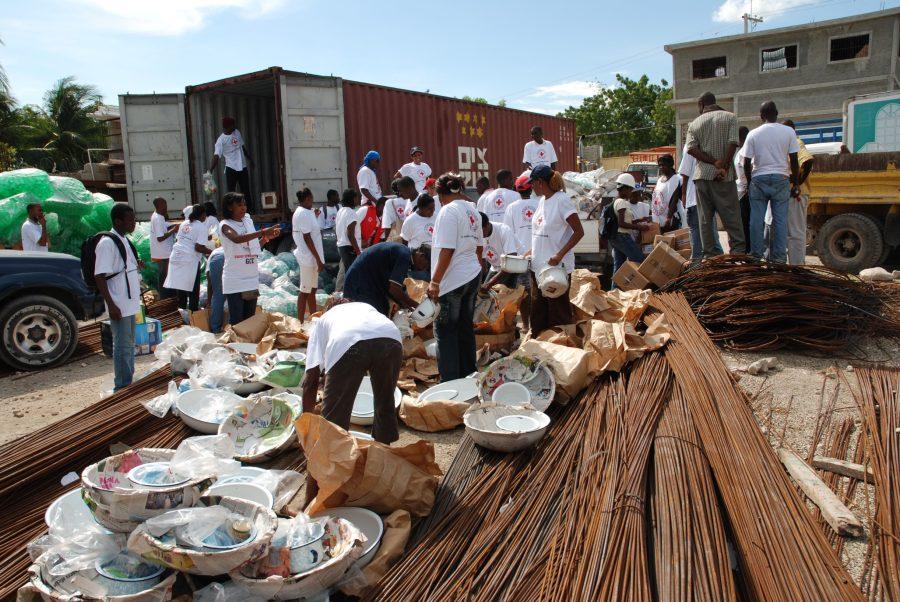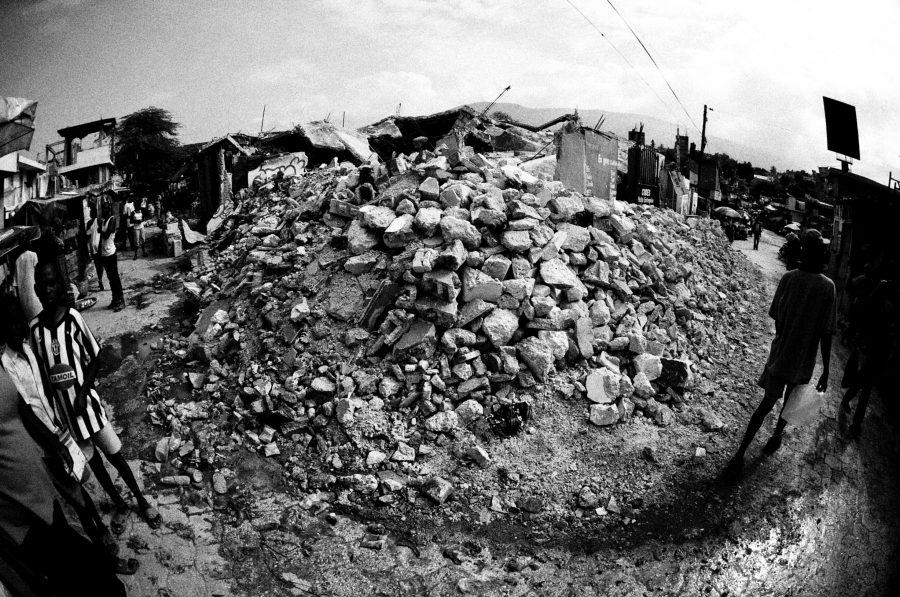Port au Prince is surrounded by over 200 slums devastated by the magnitude 7.0 earthquake that stuck the region earlier this year. These slums have no construction codes and some have gone 25 years without public services. Because of these conditions, these areas have seen even more death than the capital city itself.
Former Haitian Prime Minister, Michele Pierre-Louis, spoke at UMB on the situation in Haiti. “The world has been extremely generous to Haiti,” Pierre-Louis said, to an audience of attentive faculty and students. However, she stressed that the efforts have been, in many cases, of no help because there is “very little coordination.” She stressed that there are many, “very generous ideas with almost no operational plans.” This discord can be seen in legislation; the lack of any population policies, for example. However, more potent examples can be seen in the city and the slums themselves rather than in issues of policy.
Individuals are often asked (and offered remunerations) to remove the wreckage of their former homes. If the removal occurs at all, the mess merely shifts five or six feet from the “yard” into the middle of the street, making transportation impossible in some areas. The clutter alone is enough to halt anyone trying to get anywhere.
Disorganization is a problem that has been plaguing one of the world’s most fragile countries for decades. The 200 slums are an example of hazardous situation.
Many people died, Pierre-Louis points out, because, while they survived the earthquake, they could not escape the perilous conditions created by the earthquake. With no clear plans, no solid foundation or group to implement aid within Haiti, there was no way to help those survivors buried beneath the concrete of their collapsed homes.
Even help coming in from the outside is unreliable. Pierre-Louis described a scene in which a large pile of medical equipment (for the injured) or food and water (for the starving) was sitting, useless, pushed to the corner of a local airport.
Part of the problem is Haiti’s growing population. Today, the population of Haiti in and around Port au Prince is over 46 times larger than in the 1950s (exploding from around 60,000 to 2.8 million.) The death tolls are around (according to Pierre-Louis) 30,000 (over one tenth of the population.) This number will only grow as more rubble is pealed back, unveiling a ghastly sub-architecture of corpses. But this isn’t the only terrifying number – between 400,000 and 500,000 orphans; 5,000 amputees; 1.5 million homeless. All these numbers skyrocketed after the natural disaster in January.
Without any organized leadership (from within the country itself or from beneficent outsiders) these numbers continue soaring. Pierre-Louis stated that the only two institutions within the country that do have organization are the army and the church.
What does Haiti need to do to help its people recover from this, one of the world’s worst natural disasters? One suggestion (besides the need for organization and further targeted funding by the International Monetary Fund) offered by Pierre-Louis is science. This may sound broad, even frightfully nonspecific. Yet, science is crucial to any country, Pierre-Louis went so far as to quote a friend stating, “no science, no state.”
What Pierre-Louis means when she says “science” is broader than those doctors of astronomy who gathered back in January. Bridges. Haiti needs engineers to build bridges. Haiti needs doctors. Haiti needs city planners and medical technicians. Haiti needs science.
As it stands, the restoration is a “long term project,” something that will likely take decades.
Pierre-Louis brought up former President Clinton’s (now a special United Nations Envoy to Haiti and spearhead of relief efforts in the region) frequently quoted axiom regarding Haiti: it is a mission intent on “building back better;” the search for a holistic program that not only fixes the devastation of 2010, but builds a better Haiti for decades to come.
Piles of rubble block the roads, making it impossible for public transporation






















































